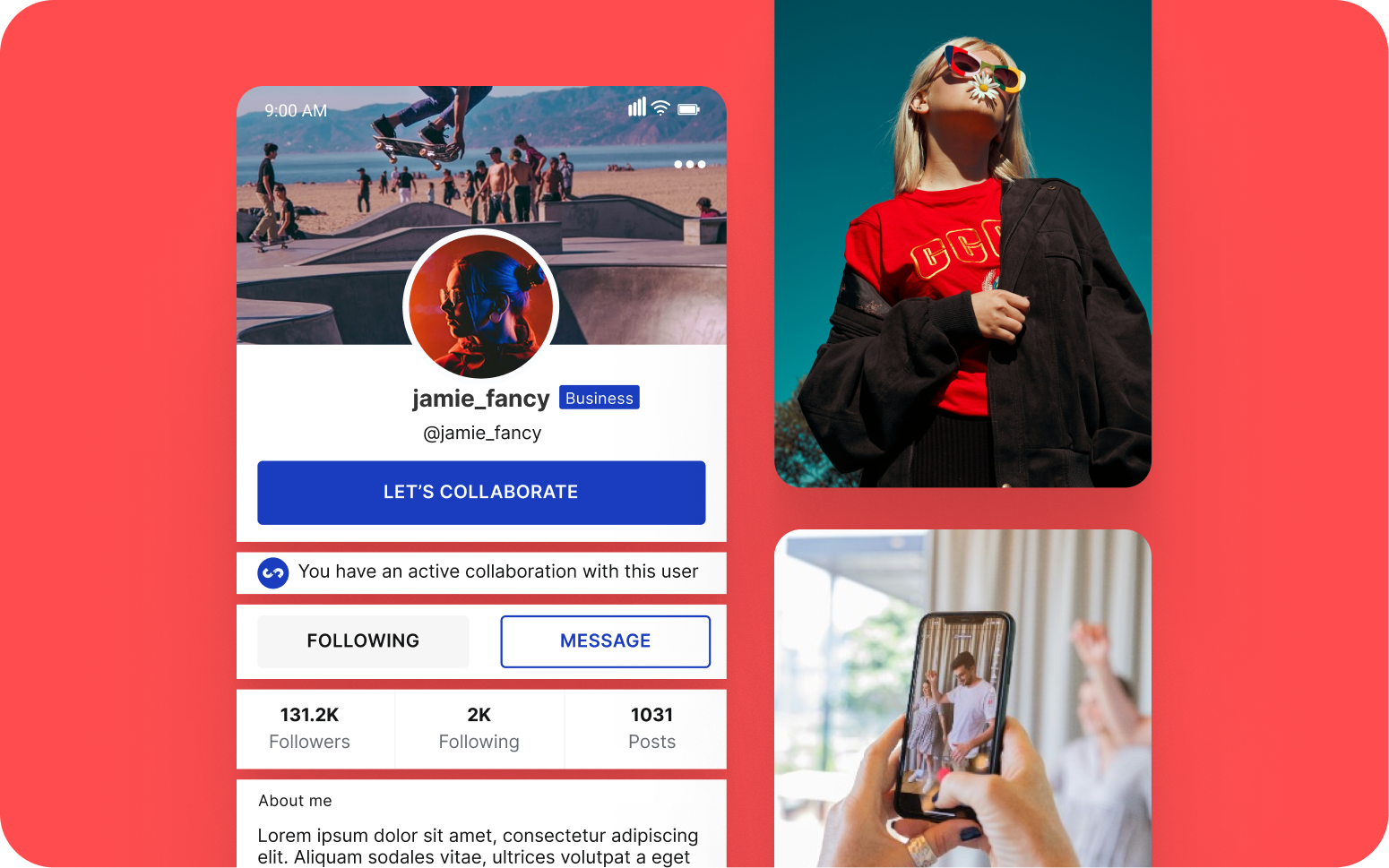Your marketing tools collect data, but are they actually driving growth?
Need a MarTech app built exactly around your growth goals?
MarTech Development Services Company
With more than half a decade of experience developing MarTech apps, we build high-performance web, mobile, and AI solutions that simplify marketing workflows, boost ROI, and scale seamlessly, helping brands accelerate growth and engagement.
Launch in 12–14 weeks and get a market-ready app quickly.
Increase engagement and conversions with data-driven apps.
Our MarTech Software Development Services
Your marketing tools collect data but may not deliver results. We build custom web and mobile MarTech apps that boost ROI, streamline processes, and scale as your business grows. With 9+ years of experience, we’ve helped startups, SMBs, and enterprises turn marketing ideas into apps that deliver measurable outcomes.
Custom Web/Mobile MarTech Applications
We design and develop applications that match your marketing goals, whether it is campaign coordination, content planning, or customer journey management. Every app is scalable, reliable, and built to reduce friction.
We turn ideas into impact fast. Recently, we delivered a fully functional AI chatbot-integrated platform in just 12 weeks, with early user feedback highlighting 48-hour time to actionable insights and deeper, more valuable feedback.
AI-Powered Chatbots and Personalization Engines
We make AI-driven chatbots and recommendation engines that actually get your customers. They dig up insights, sometimes 4x deeper than you expect, and help make each interaction feel personal.
Such MarTech tools learn how people behave, so you don’t have to keep an eye on every conversation. We make sure it still sounds like your brand, but human.
Social Media Management Tools
Managing posts, tracking feedback, and analyzing engagement across channels shouldn’t slow your team down.
We build social media tools that integrate AI insights, centralize content, automate approvals, and enable real-time collaboration.
A recent AI-powered LinkedIn automation platform helped professionals create, schedule, and optimize content, achieving 50% higher post engagement.
Loyalty and Rewards Applications
We build loyalty apps that recognize and reward customer behavior, strengthening loyalty and boosting repeat purchases.
A loyalty rewards mobile app we developed for a reputable manufacturer in Ireland saw 5,000+ downloads within 3 months.
Another retail-focused loyalty app generated 2,000+ sign-ups in the first week and doubled customer purchase frequency.
Marketing Automation Platforms
Manual marketing workflows slow growth. We build automation platforms that handle lead nurturing, segmentation, and campaign scheduling, triggered by real user behavior.
A reputable enterprise struggling with engagement used our solution to streamline operations, enabling teams to respond faster and more effectively to customers.
Content and Digital Asset Management Systems
We build custom CMS (Content Management System) and DAM (Digital Asset Management) tools that actually make life easier for big marketing teams deal with a ton of content.
A white-label video creation platform we built enabled small businesses to produce 8,000+ marketing videos from 400+ templates in minutes, without prior video experience.
Data Integration and Analytics
We integrate CRMs, ad platforms, analytics tools, and customer databases into centralized dashboards for real-time, actionable insights. This ensures teams can make faster, data-driven decisions.
In one project, a programmatic SEO migration of 3,000+ pages was completed with zero downtime, giving the client full visibility across marketing channels while protecting traffic.
End-to-End Support and Maintenance
We don’t just hand over your app and walk away. We keep helping with updates, fixes, and improvements so your marketing app keeps performing.
With over 14K marketing tools in the market today, we ensure your app stands out by delivering measurable results, streamlining processes and staying up to date with the latest features and technologies.
Types of Custom MarTech Softwares We Develop
Marketing Automation and CRM
- LinkedIn Content Creation Software
- Marketing Automation Software
- Sales Automation Software
- Customer Relationship Management (CRM) Software
- Social Commerce Platform
- Email Marketing Software
- Workflow Automation Software
- Revenue Management Software
- Customer Loyalty Software
- Affiliate Marketing Software
- Customer Experience Management (CXM) Software
- Introduction Management Software
Marketing Analytics and Advertising
- Marketing Analytics Software
- Analytics for Social Media
- Real-Time Bidding (RTB) Software
- Software for Social Media Marketing
- Supply-Side Platforms (SSP)
- Demand-Side Platform (DSP)
- Marketing Chatbots
- Online Reputation Management Software
Content and Asset Management
- Custom CMS for Marketing
- Video Platforms
- Digital Asset Management (DAM) Software
- Advertising Agency Software
- Enterprise Mobility Apps
Transform your ideas into scalable MarTech solutions
Benefits of Investing in Custom MarTech Software Development
Data Management
Most teams we work with have data all over the place. It’s confusing. We help centralize it so you can actually see what’s going on and make decisions without second-guessing.
Customer Engagement
People notice when you care. We automate, but we make it feel personal, so your customers actually engage instead of tuning out.
Lead Generation
Leads get lost if you don’t act fast. We build systems to capture, nurture, and follow up automatically. You’ll be surprised how much difference timing makes in marketing.
Campaign Optimization
Some campaigns flop. We track results, find patterns, and adjust so next time it performs better for you. Small tweaks can make big impacts in real.
Marketing Automation
Manual tasks are sometimes very time-consuming. We take care of them so your team focuses on the creative and strategic stuff that really matters.
Targeting and Personalization
It’s more than putting a name in an email. We help you deliver what customers want, at the right time, in the right way.
Analytics and Reporting
We make data understandable. You see what’s working, what’s not, and can steer your strategy without drowning in numbers.
Content Creation
Managing content can be a mess. We help teams plan, store, and publish content across channels without losing control.
AI-Powered Insights
AI can help see things humans miss. We use it for patterns, predictions, and insights. But the final call will always be yours.
How We Support Clients with Our MarTech Services
For MarTech Startups
We help startups build products that captivate users and investors by focusing on your audience’s true needs.
.
- We deliver effective solutions to enhance quality, UX, and investor alignment.
- We work with startups during different investment rounds. Rapid implementation of requested features.
- Integration with industry-specific third-party services.
- Optimization of infrastructure costs.
- Data visualization and exporting.
- Extension of your development team.
For Digital Agencies
With our industry expertise, we provide full-cycle MarTech services to support your internal tools or commercial product launches.
.
- We customize user interfaces, integrate essential tools, and offer white-label solutions.
- Marketing software development and design from scratch.
- Discovery phase includes defining scope, goals, and limits.
- MVP development and beta testing with real users.
- Third-party integrations considering your specific needs.
- Integration with existing business processes
For Enterprises
We partner with enterprises to build apps that streamline marketing operations, improve engagement, and scale platforms efficiently.
.
- Loyalty and rewards apps to boost customer retention and repeat purchases.
- AI-driven chatbots and personalization engines for smarter customer interactions.
- Social media management and analytics tools to enhance campaign performance.
- Centralized data integration and real-time actionable dashboards.
- Scalable platforms and optimized systems to support business growth.
Take your marketing to the next level with smart MarTech
Equip your team with expertly crafted MarTech apps that streamline workflows, boost engagement, and keep your brand ahead in a competitive market.
Our MarTech Application Development Process
We use an agile approach to build custom MarTech solutions tailored to your business. Our developers handle everything from concept to launch, ensuring on-time delivery, quality, and complete transparency.

Initial Consultation
We understand your vision, goals and what your tech needs are before moving to the next step. This helps us plan the project and testing strategies.
📌 Deliverables: Project brief, initial requirement document, high-level timeline.
Discovery Phase
In the discovery phase, a detailed plan is created, outlining the development timeline, technologies, and key milestones. This ensures clarity and alignment before development begins.
📌 Deliverables: Project roadmap, wireframes, tech stack selection.
MVP Development
We develop a Minimum Viable Product (MVP) with essential features. This allows you to test your idea with real users and gather early feedback.
📌 Deliverables: Working MVP, basic UI/UX design, initial user feedback report.
Quality Testing
Your software undergoes thorough testing to identify and fix issues. We check for functionality, security, and performance to meet industry standards.
📌 Deliverables: Test reports, bug fixes, security audit results.
Full Feature Development
With the MVP validated, we build additional features, improve the UI/UX, and optimize performance before launching the final version.
📌 Deliverables: Fully developed software, final UI/UX design, user documentation.
Scaling and Growth
After launch, we monitor user behavior, collect feedback, and make updates to ensure your software keeps evolving with your business.
📌 Deliverables: Performance reports, feature updates, scalability plan.
Why Choose Us for MarTech Application Development?
Human-Driven, AI-Powered
We develop MarTech apps starting with strategy and design driven by humans, while AI takes care of insights and routine work.
These apps help your marketing teams tackle real challenges and make their day-to-day workflows simpler and faster.
Agile Development Process
We follow an iterative process that allows quick testing, adaptations and continuous improvements based on user feedback.
The agile approach helps us to deliver fast and ensures your product is built with quality and to scale in the future.
Tailored Custom Solutions
We tailor our MarTech solutions in order to match your exact business goals.
Every app we build is flexible, scalable, and connects smoothly with your existing marketing systems and any third-party tools you rely on.
Transparent Communication
We're always available on Slack and Asana. You’ll always know where things stand in the development process.
Our team shares weekly updates, roadmaps, and open collaboration to keep you in control while we handle the technical heavy lifting.
Faster Launch, Real Feedback
We keep things transparent so you always know what’s happening. Early functional prototypes are tested with real users so you can see what’s effective and what needs work.
This feedback loop lets us act quickly, refining the product to deliver real value to the your targeted audience.
Flexible Engagement Model
We offer flexible engagement models that align with your business stage to avoid upfront costs.
Whether you’re validating an idea or expanding a mature product, we help you get results, and you pay for value delivered, without stretching your budget.
Start your custom marketing software project
Turn your marketing ideas into reality with tailored MarTech apps that automate workflows, centralize data, and deliver measurable results for your team.
Our MarTech Application Development Case Studies
Industries We Serve
HealthTech
Healthcare teams deal with messy patient data, slow appointment processes, and tricky compliance rules.
We build medical platforms that unify patient records, streamline appointment management, and improve clinical workflows, helping teams deliver faster, more efficient care.
Don’t let slow systems stop your team from giving better care to your patients.
Media & Communication
Content creators and media platforms face slow content delivery, scattered engagement, and audience retention challenges.
We develop media apps for immersive media, social networking, live streaming, and on-demand content to help teams capture attention and keep audiences engaged.
Stay ahead of your competitors before they dominate audience attention.
MarTech
Marketing teams struggle when there’s too much manual work and engagement is all over the place.
We build simple automation and AI MarTech tools that make campaigns easier to run and results easier to track.
Teams can finally focus on strategy instead of busywork. Don’t fall behind in the fast marketing world.
Loyalty Apps
Customer retention is tough in competitive markets, and businesses without rewards programs risk losing repeat buyers.
We create loyalty and rewards apps that track engagement, automate incentives, and strengthen customer relationships.
Don’t miss out on turning first-time buyers into lifelong customers.
Drive repeat business with customized loyalty web and mobile apps. Reward your customers and build lasting brand relationships.
Digital Commerce
Online selling can be complex and slow for small and medium businesses.
We build modern eCommerce solutions on top platforms like Shopify and custom web apps that improve user experience, simplify operations, and boost revenue.
Don’t fall behind competitors who are already speeding up sales. Our solutions focus on what actually drives growth, such as faster checkouts, smarter inventory tracking, and data-backed insights that turn visitors into loyal customers.
Hospitality
Inefficient booking systems and long check-in processes can frustrate guests.
We develop smart hospitality apps that streamline bookings, automate check-ins, and enhance guest experiences, helping teams deliver seamless service.
Make sure your guests choose your service first, not your competitor. We create hospitality platforms that speed up everything, give guests tailored offers, and let them request services instantly, so stays feel easy and special.
Your Martech Development Journey Starts Here!
Get a Free Consultation
Fill out the contact form below and schedule a free consultation call with our experts to discuss your MarTech product idea.
Get Your Cost Estimate
Our experts will assess feasibility, provide insights, and share a cost & timeline estimate.
Build & Launch
Once finalized, our team gets to work, turning your vision into a fully functional MarTech software product as required.
Frequently Asked Questions
MarTech is just marketing and tech working together. Most marketing fails because it’s not smart enough. MarTech fixes that. It successfully combines your strategy with technology to run campaigns, track results, automate repetitive tasks, .
The tools give you insights that actually make sense. When you integrate MarTech into your business, campaigns start performing. You start to connect with the right audience, make messaging more personal, and see results you can actually measure.
Our team delivers a wide range of marketing technology solutions, including loyalty apps, CRM software, growth hacking tools, video streaming apps for content creators, and more.
Whether you aim to streamline your marketing processes, harness the power of data analytics, or scale your current platform, we excel in turning your vision into reality efficiently. We specialize in providing end-to-end marketing technology development services that help businesses grow faster and smarter.
Building custom marketing software, such as loyalty apps, CRM software, growth hacking tools, etc., can vary greatly in cost. Here are the main factors that influence the price:
- Project Complexity : Simple projects cost less than complex ones with many features.
- Project Size : Larger projects with more features or users are more expensive.
- Technology Stack : The choice of technologies can impact cost. Some tools or platforms are pricier than others.
- Design Requirements : High-quality, unique designs require more work and money.
- Third-Party Tool Integration : Integrating with other services can add to the cost.
- Maintenance and Support Needs : Ongoing support and updates will increase the overall expense.
Careful planning around these factors will help ensure your investment is worthwhile. Check our pricing page to learn more.
We guarantee the quality of the end product through a combination of rigorous processes and best practices:
- Clear Requirements and Planning : Before starting any project, we thoroughly understand your requirements and business goals. This ensures we align our efforts with your vision from the beginning.
- Experienced Development Team : Our team consists of skilled developers, designers, and quality assurance specialists with expertise in MarTech solutions. Their experience ensures that we follow the best practices at every stage of development.
- Agile Development : We work in sprints. Show you the progress. Get feedback. Fix things. Repeat. Less risk, better product.
- Comprehensive Testing : We test early and often. This includes functional, integration, and user acceptance testing. This helps us catch potential issues early, ensuring a high-quality app.
- Continuous Communication : We maintain open and frequent communication with you throughout the project. This provides transparency and ensures that we meet your expectations at each stage.
- Post-Launch Support and Updates : Even after the product is launched, we offer ongoing support to address any issues and provide updates, ensuring that your MarTech solution remains reliable and effective over time.
By combining these strategies, we ensure that the final product is reliable, efficient, and meets your business objectives.
You can test our expertise by reviewing the following:
- Portfolio : Explore previous projects we've worked on. This will give you a sense of the quality of work and the type of solutions we’ve delivered to clients in the MarTech space.
- Consultation : We can schedule a consultation call to discuss our capabilities. This would allow you to see firsthand how we approach MarTech challenges and solutions.
- Client Testimonials : We can provide feedback from clients we’ve worked with, highlighting their satisfaction with our work and how our solutions impacted their business.
Let us know which option works best for you, and we’ll be happy to provide more details!
Emerging technologies in the MarTech industry are revolutionizing how marketers engage with customers and optimize campaigns. Key innovations include:
AI-powered Chatbots : These automate customer interactions, providing instant support and enhancing the customer experience.
Augmented Reality (AR) : AR allows brands to create immersive experiences that drive engagement and customer loyalty.
Virtual Reality (VR) : VR is being used for interactive product demos, virtual shopping, and experiential marketing.
Voice Search Optimization : With the rise of voice assistants, optimizing content for voice search is essential for better visibility and reach.
Personalized Marketing Automation : AI-driven automation tools deliver personalized content and offers at the right time, improving conversion rates.
Improved Social Media Targeting : Advanced targeting options on social platforms help marketers reach the right audience more effectively.
Blockchain for Digital Advertising Transparency : Blockchain ensures transparency and accountability in digital advertising, helping to reduce fraud and enhance trust.
Advanced Data Analytics Tools : These tools provide deeper customer insights, enabling more accurate segmentation and data-driven decisions.
These technologies are empowering marketers to create more engaging, efficient, and personalized experiences for their audiences.










